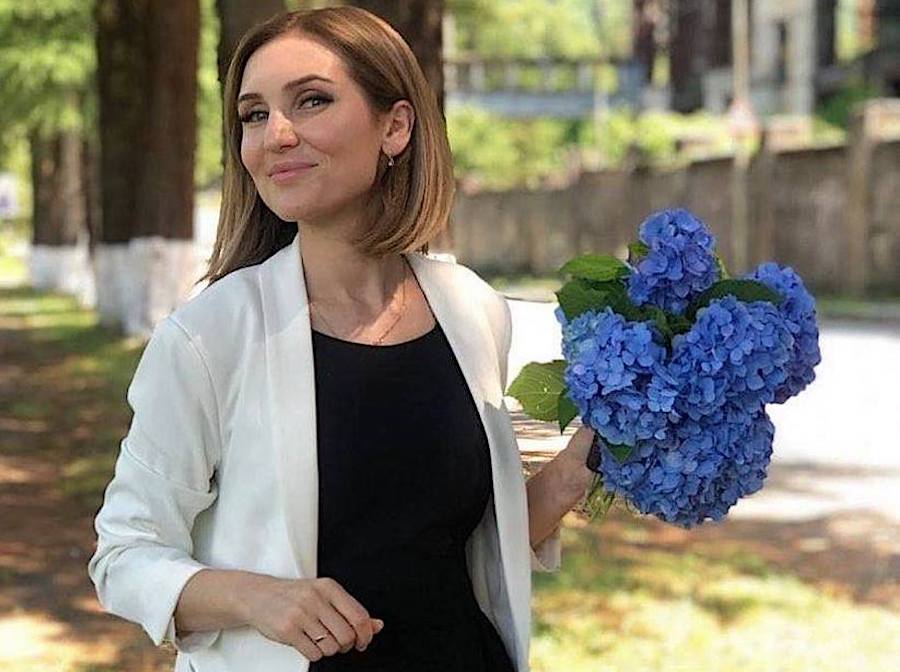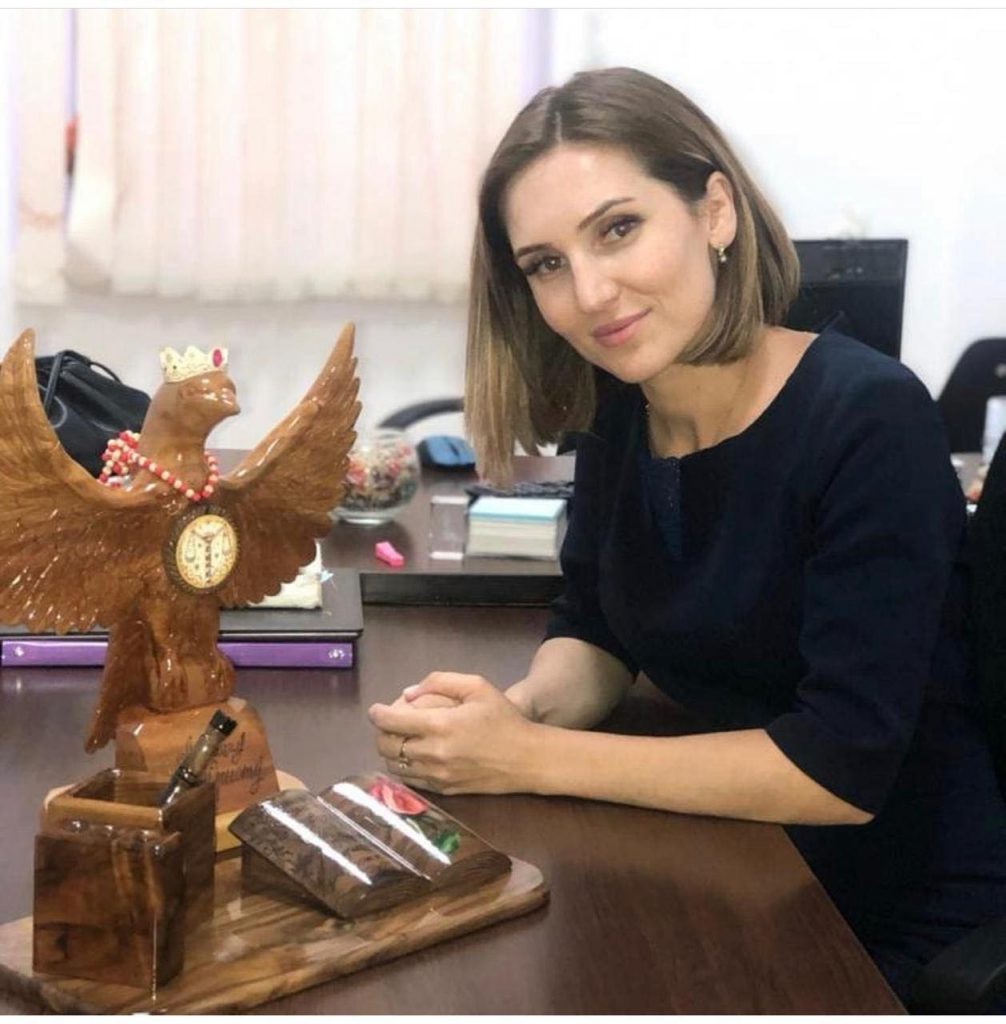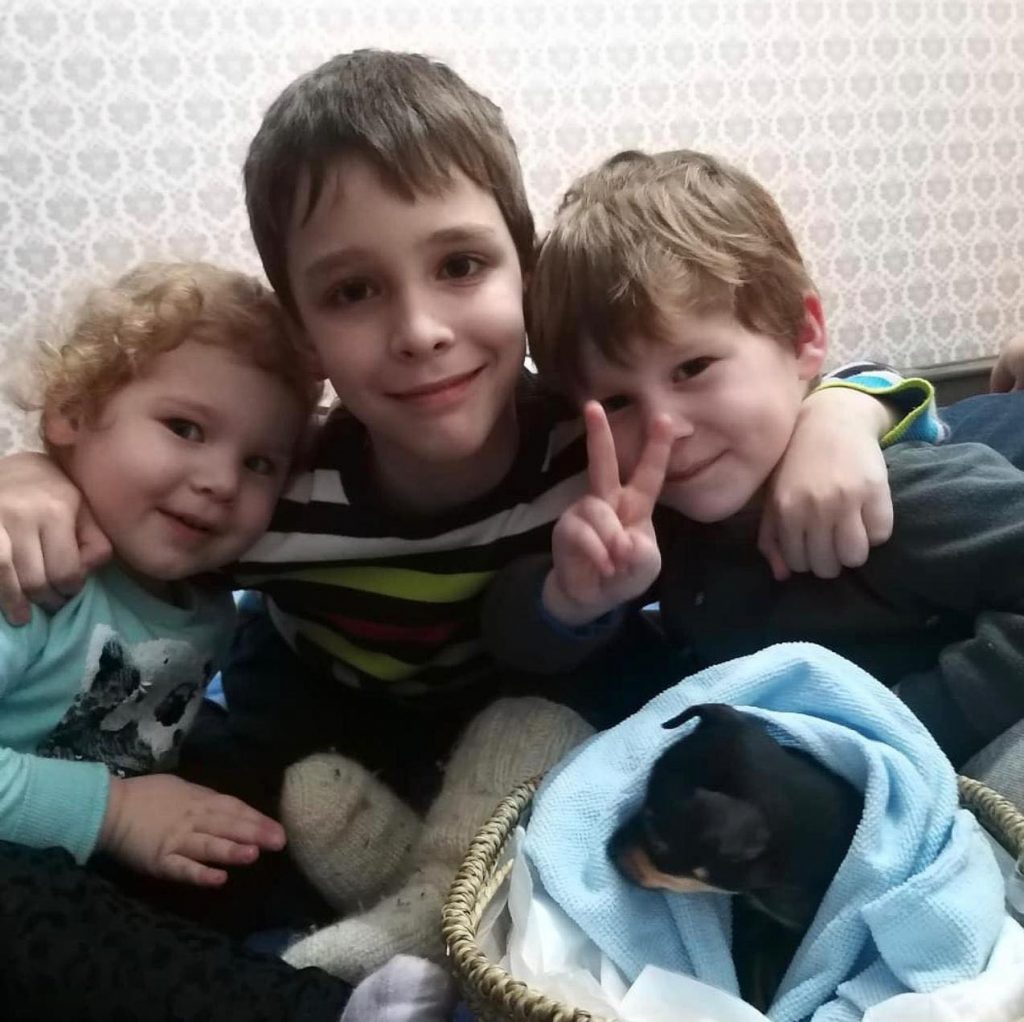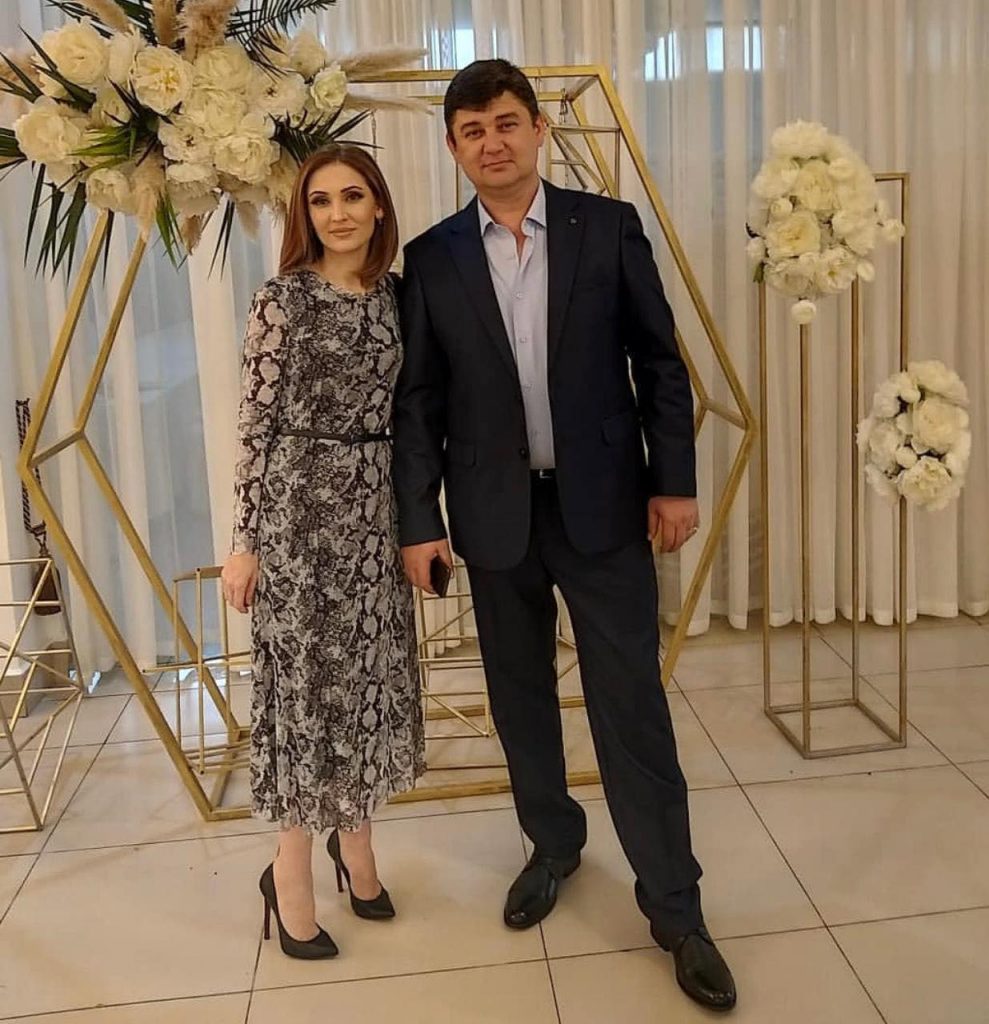Abkhazia's most famous female lawyer talks about career in law, family, and Abkhazia's legal practices
Inga Gabilaya, one of the most famous lawyers in Abkhazia, is a happy mother of three, and a professional with 11 years of experience. Gabilaya participates in almost all high-profile processes, constantly communicates with the press and, from the outside, it seems as if she has time for everything. Right now Inga is working on two cases at once – she is defending Akhrik Avidzba [a former presidential aide accused of possession of weapons] and representing the interests of the Shamba family injured in a triple murder case on the Sukhum embankment in November 2019.
We asked Inga Gabilaya to what she owes her success, how she ended up in the legal profession, and how important family is in her life.
-How does your day start and when?
-I have an alarm clock set for 6:30 am, but I usually wake up exactly one hour before it. I quickly iron my things, get my eldest child ready for school and younger ones for kindergarten. I usually take the younger ones to the kindergarten and my husband takes the older one to school. At about 8 I leave the house and I am out until 1 or 2 am. I get up in the morning and think: I have no strength, what should I do, how to endure this day? And then I just get up and walk.
- Russian tourist attacked, tortured in Abkhazia
- How to protect children in Abkhazia – expert opinion
- Residents of Abkhazia allowed to bear arms
-Do you have court trials every day?
– Every day I have at least two trials. Any sanctions or preventive measures always come as a surprise to the defence lawyers, we only find out about them two or three hours in advance and we then need to somehow include this in the main schedule.
-How many cases do you handle at the same time?
-The law does not limit the number of clients. That is, it all depends on how much you can cope with physically. Now I have a little more than twenty cases in progress at the same time.

– Did you decide to study law because it was your true passion or was it your family’s decision?
– I have never burned with passion for this profession, I did not want it. I dreamed of studying design, I was crazy about it. But my mother raised my sister and me alone. She invested in us in every possible way. She traded in the market, it was not easy. She said, “I will not spend a single ruble on this [design] degree, choose something serious and good”. At first, I was seriously thinking about studying customs but then they persuaded me to choose a broader field, and I applied for law.
– When did you decide to become a lawyer?
– I have always liked to defend someone’s interests more than to accuse them of anything. But I made up my mind during the fifth year of studies. In general, everything that happened in my life was a matter of chance.
I studied in Russia, at the Mordovian State University, and came home to practice. I first joined the city court, then in the Supreme Court. I remember once there was a March 8 celebration, and there was my current boss (chairman of the Chamber of Advocates of Abkhazia – author’s note) Konstantin Lavrentievich Chagava. The judges praised me in front of him.
Lavrentyevich then asked: “Where do you want to work, my dear?” I said I don’t know, I’ll graduate from university, come back, get a job, but I have a dream of becoming a lawyer. He said: “Why go somewhere else? Come join us, get some training and start working”. That’s what I ended up doing.

At first, when I returned after getting my degree, I went to the Ministry of Justice with my mother and said: “Hello, I’m looking for a job”. They said: “Well, write a statement, if we like it, we will call you”. Mom insisted, but I immediately realized that I would not be useful there. As a result, I went to Lavrentievich, and he remembered me although I did not believe in such an easy job prospect. As a result, apart from a year of internship, I have been working as a lawyer for 11 years.
– Was it difficult to start?
– The most difficult thing was distrust. When we are young, we all work as lawyers on demand. The family calls you, listens and is very sceptical of everything you say because you are young. Then they mostly go to the older lawyers. It was so offensive; you perceive yourself as a child, others perceive you as a child. In general, the first three years were very difficult.
– Age aside, did you ever have any problems because you are a woman?
– In the beginning, yes. But right now all issues have been resolved. Now if they come to me, they choose me. If they don’t trust me, then they just don’t come to me.
You see, I don’t act like a woman. I am a man in a dress. I also have a strong character, I will never let anyone offend me because of my age or gender.
– Without going into too much detail, have you ever felt scared at work?
– There was this one incident. and, by the way, later on, I had a very good relationship with the opposite side. I was not that afraid, but I felt very uncomfortable during the process although I behaved very confidently at the trial. Without going too deep into it, I will say that this was the case of an attack on a policeman, and I represented the victim. The defendants were sitting, rubbing their hands, and looking at me. When I got into the car after the meeting, my legs trembled for another five minutes, I could not get underway. Then I said to myself: “Inga, calm down” and left. Although today I can no longer understand why I was so scared.
– Under what circumstances can you refuse a case?
– If I’m not interested in it. No other reason.
– A case that we simply must ask you about is the challenging of the results of the 2019 presidential elections. What role did it play in your career? Has the attitude towards you changed after that?
– Yes, the presidential process gave me recognition in Abkhazia, but beyond that, the case of Akhra Avidzba has done much more. Recently someone recognized in Russia – “You are Akhrik’s lawyer”.
As for the “presidential case”, I was invited and I agreed with pleasure. And by the way, I know that before me several lawyers refused this case. They didn’t want to get involved. Why? Because of the current government. Even my relatives, family members, and friends, told me: “Inga, this will end your career of five years!” I was not afraid of anything. My people will always come to me.
Yes, I was a supporter of the current government, and then the opposition. I did not enter this business for material gains. I’ve heard rumors that I was given a Mercedes, paid a million or ten million. I am afraid I will have to disappoint many as none of this happened. I was only paid 30,000 rubles [about $ 460] for the hearing in the court of the first instance and a further 30,000 rubles for the second hearing. This was only the second administrative case in my career.
– Does a good lawyer earn a lot in Abkhazia?
– Now I work for myself, and in recent years I have ceased to be a lawyer on demand. I believe that we have enough young people to gain experience there.
This is not because I don’t want to work for free, I have some cases where I don’t take money out of principle. For example, in the case of Akhra Avidzba, I work for free. Our friendship with Akhra began as a result of the political events of 2020.
But in general, an Abkhaz lawyer is not a rich person, if they are working elsewhere as well. Here in my family, there is nothing extra. My husband did not work for several years under the previous government. When the government changed, he was invited to work in the Ministry of Internal Affairs. But six months later, he was advised to leave his job and write a letter of resignation. It was because of me, because of my activity.
– Did you not try to challenge this in court?
– No, absolutely not. I believe that a lawyer is a job where you work for yourself and worry only about your name. But if you are not wanted in the structure, I believe that the struggle will not lead to anything good.

– You have a husband and three children, family responsibilities are unavoidable. Who helps you?
– Everything related to driving the children around is on my husband. Otherwise, my mother helps me with everything – cooking food, cleaning, washing. My husband knows that my job means everything to me, and the children too. My eldest, for example, sometimes says instead of “Mom, where are you?”, “Mom, I saw you on TV today”.
I recently listened to a lecture about parenting and I liked the opinion that the time spent together is not as important for children as an example of a successful parent. I guess I liked it because it suits me.
– What does your typical weekend look like?
– Whatever it is, it’s always full of phone calls. Moreover, they call until 10-11 pm. Then, apparently, the people, my beloved, understand that it is better not to call me. But depending on the situation, I give legal advice on the phone around the clock. The work of a lawyer can only be like this. I know that if I don’t work today, there will be nothing to eat tomorrow.

– What’s worse – sentencing the innocent or releasing the guilty?
– Of course, sentencing an innocent. I have one case in which the court decided to imprison a person for murder, but I am absolutely sure that he was not to the one to blame. There isn’t a day that I don’t remember this case, this person. For me, this person is the real victim and it gnaws at me. I dream of helping him.
– Where do you see yourself in the future? For example, in 10 years?
– In the near future, I only see myself as a lawyer. And in ten years … well, what is everyone striving to achieve? Becoming a judge. But not earlier than ten years from now. I am a person with high moral principles, and as a lawyer, I have a right to decide on whether or not I want to take the case.
In the judicial system, it is difficult for judges to express their position today. Although there are recent cases where judges show willpower and, despite many factors, make fair decisions, and cases like this are very refreshing. I understand that there is something to strive for and not everything is not so bad.
In general, we need judicial reform. I believe that only people with great experience should become judges. I had several offers to become a judge already, but I always said no. It’s too early. I am not yet ready to take responsibility for the fate of a person.
Toponyms, terminology, views and opinions expressed by the author are theirs alone and do not necessarily reflect the views and opinions of JAMnews or any employees thereof. JAMnews reserves the right to delete comments it considers to be offensive, inflammatory, threatening or otherwise unacceptable


















